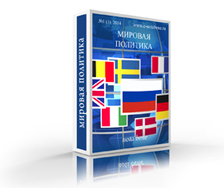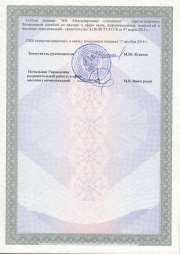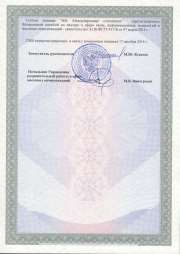MAIN PAGE
> Journal "World Politics"
> Rubric "International conflicts"
|
Ivanov O. - Trans-Dniester Conflict: Actual Status and Solutions
|
|
pp. 1-12
|
DOI: 10.25136/2409-8671.2018.1.25259
Abstract: The article is devoted to the actual status of Trans-Dniester conflict and possible solutions of that conflict. In his research Ivanov carries out his analysis in terms of Russia's policies in the region. The author describes the role of the region for Russia as well as the role of Russia for regional security. To define key factors affecting processes of formation and realisation of Trans-Dniester Moldavian Republic's interests, the author suggests to analyse the scope of extrapolitical conditions and structure of international and regional relations, external and internal state policy, role of the political leader and relations of political and economic elites with the society. In the course of writing his research the author has used a set of methods including historical, institutional, comparative analysis as well as systems approach and sociological research methods. The novelty of the research is caused by the fact that the author tries to view possible scenarios of the development of unrecognized Trans-Dniester Moldavian Republic taking into account all concerned actors as well as from the point of view of the actual status and potentials of Russia - Moldova relations and situaion in the region. The goal of the global community is to find acceptable solutions. The goal of Russia is to persuade the global community that it is necessary to solve Trans-Dniester conflict through negotiations and Russia's leaving the conflict zone may aggravate the situation. The author emphasizes that effective development of the region is possible only with the principles of peace and mutual respect.

|
El'zeni N.K. - Socio-Political Factors of the Military Conflict in the Syrian Arab Republic
|
|
pp. 11-19
|
DOI: 10.25136/2409-8671.2023.2.39996
EDN: SOOGKA
Abstract: The article "Socio-political factors of the military conflict in the Syrian Arab Republic" examines the main factors influencing the conflict in Syria. The study is based on the analysis of statistical data and the results of a survey conducted in Syria. The article shows that the military conflict in Syria is caused by political instability, economic problems and disagreements between various political groups. In addition, ethical and religious differences and the influence of external forces on the situation in the country are also important factors in the conflict. The findings of the study emphasize the need to continue work to resolve the conflict in Syria through political dialogue and peaceful negotiations between the parties, as well as creating conditions for political stability, justice and economic well-being for all segments of the population. The military conflict in the Syrian Arab Republic has many causes and factors that interact with each other and strengthen the situation in the country. Political instability and divisions between different political groups, the presence of economic problems and injustices, ethical and religious differences and the influence of external forces on the situation in the country - all these factors contribute to the aggravation of the conflict. However, despite the complexity of the situation in Syria, there are chances to resolve the conflict through political dialogue and peaceful negotiations between the parties. To do this, it is necessary to eliminate the roots of the conflict, to ensure political stability, justice and economic well-being for all segments of the population. Thus, it is important to continue research on the socio-political factors of the military conflict in Syria and work on creating conditions for a peaceful resolution of the conflict, which will ensure the security and well-being of the inhabitants of this country.

Penkov V.F., Alfedeilat F. - “The deal of the century”: the possible scenarios of the future political regime of a Palestinian state
|
|
pp. 23-36
|
DOI: 10.25136/2409-8671.2020.1.32417
Abstract: The subject of research is “the deal of the century” or the Middle East Peace Plan initiated by the U.S. “The deal of the century” is the U.S.’s attempt to model a hard approach to the Israeli-Palestinian conflict settlement. The American model, being externally inserted, in fact, validates the domination of Israel and mothballs a set of territorial, military, political and economic “problem fields” which carry the potential to escalate the conflict between Israel and the Arab world in the near term. The leading research method is case study based on which the authors prognosticate the possible scenarios of development of the situation. The scientific novelty of the research consists in the fact that the authors prognosticate the variants of the possible progression of events in Palestine from the logical and realistic viewpoints. The authors consider three scenarios. The first two suggest that Palestine would reject the proposed settlement plan. The third scenario is possible if certain political groups and persons of influence accept Donald Trump’s peace plan.

|
Manoilo A.V. - Value foundations for managing intercivilizational conflict: the Russian approach
|
|
pp. 32-43
|
Abstract: This article presents results of the research on prospective ways to improve the theory of international conflict management, based on the value, cultural and civilization paradigm. As a result of comparative analysis of Anglo-Saxon, Roman-Germanic, East Asian and Near East approaches to managing conflict, it is established that neither system is complete and balanced. This results in certain problems in utilizing those approaches in modern peacekeeping operations, thus requiring significant improvement of the cultural and civilization paradigm and imposes additional requirements for Russian civilizational approach to solving international conflict.
|
Boyarkina O.A. - Water Factor in Turkish-Syrian Relations
|
|
pp. 56-63
|
DOI: 10.25136/2409-8671.2017.4.18814
Abstract: The article focuses on consideration of the Turkish-Syrian conflict on the Euphrates transboundary river. The author analyses main reasons for the formation and development of interstate contradictions on water-share in the context of general political instability in the region. Turkey (has the largest reserves of fresh water) in desires for regional hegemony and uses water as a strategic tool of political pressure on the downstream States suffering from severe water shortage. The author reveals the degree of effectiveness of the concluded agreements and other interstate regulatory legal acts on use of the regional waters of the Euphrates river basin. The article applies a historical-political method for studying the water conflict in historical dynamics. Event-analysis and case-study methods contributed to the analysis of the formation and development of the conflict of interests of Turkey and Syria in the distribution and use of transboundary water resources. The article concludes that the conflict with regard to the water sharing regime of the Euphrates River in the near future is to grow due to an increase of the anthropogenic pressure on the water resources, a climate change that contributes to reduction of the available fresh water for the needs of irrigated agriculture, economic development of the countries of the river basin and human life activity. The lack of political will among the leaders of the neighbouring countries, prevalence of national interests over regional ones do not help to solve the water problem and threaten the political stability in the region.

|
Gavrilenko N.V. - The Ukrainian dimension of Britain's foreign policy amid the Russian special military operation
|
|
pp. 59-73
|
DOI: 10.25136/2409-8671.2023.2.40649
EDN: RGUFRA
Abstract: The article looks at the UK's foreign policy in Ukraine against the background of the special military operation of the Russian Federation. The author examines historical prerequisites for Britain's involvement in the conflict, in particular, reveals the process of forming a model of the state's behaviour in the international arena and shows how bilateral relations between London and Kiev have developed. The study also determines the significance of the events in Eastern Europe for the UK as a power with global ambitions. The scientific research program of realism is used as the theoretical basis of the article, with the historical—genetic method, discourse analysis and problem node decomposition used as its methodological basis. While conducting a research, an attempt was made to systemise all the goals and interests that the United Kingdom pursues. It was concluded that London takes part in the crisis in Ukraine indirectly for several reasons that are national, regional, and global in nature. All the efforts of the political leadership are aimed at diverting attention of British subjects from domestic political issues, strengthening the position of the state on the European continent and not allowing the Russian Federation to fulfil its strategic tasks, thereby creating new opportunities for itself elsewhere.

|
Kleshchenko L.L. - Ideological Factor in Interstate Conflicts of the New World
|
|
pp. 99-106
|
DOI: 10.25136/2409-8671.2018.3.18423
Abstract: The subject of the research is the ideological aspects of interstate conflicts in the Pan-American regional subsystem of international relations. The author analyzes the dynamics of conflicts between the USA and Cuba, USA and Venezuela, and Venezuela and Columbia in 1991 - 2015. In the 1990s Latin American states had ideologically homogenous political regimes united by the aim to transfer to representative democracy and market economy. However, the situation changed in 1998 when Venezuela was governed by the left-wing natinalist forces that held uncompromising attitude towards the USA policy in the region. In the XXIst century Venezuela's active foreign policy often became the cause of interstate conflicts in the New World. To analyze the dynamics of international political conflicts, the author of the article refers to the restrospective analysis of the newest political history of the Latin American and USA countries. The author concludes that at the end of the XXth - beginning of the XXIst century the New World still face conflicts that were mostly caused by different ideologies. These conflicts happen between states oriented at different models of socio-political development (socialistic or liberal conservative), thus political ideas and values make a matter of conflicts.

|
Ivanov S.M. - Events in Ukraine and in Syria: a vivid example of double standards policy of the USA.
|
|
pp. 153-158
|
DOI: 10.7256/2306-4226.2015.1.12673
Abstract: The Ukrainian crisis once again has vividly shown the double standards policy of the Western world. The hitmen of the "Right Sector" and pro-Fascist Bandera organizations took over and ruined government buildings, burnt people alive, fired shots at mlitia officials and common people from ambushes, but they are regarded as "fighters for freedom and democracy" in support of the new regime by the West. The events in Ukraine and in Syria pose a vivid example of "double standards" policy of the USA. The methodological basis for the studies is formed with the systemic, structural-functional and comparative legal approaches, methods of analysis, synthesis, induction, deduction, observation, modeling and forecasting. At the same time the people of the South-Eastern regions of Ukraine, who have expressed their will to live and work independently without Kyiv via the regional referenda were regarded by the new Government and the West to be separatists and terrorists. Under a guile of anti-terrorist operation there was a large-scale punitive expedition against them with the use of military aviation, armoured vehicles and artillery.

|
Rep'eva A.M. - History of the border conflict between India and Pakistan.
|
|
pp. 159-175
|
DOI: 10.7256/2306-4226.2015.1.12618
Abstract: The article poses an issue of the need to point out the unique character of each specific conflict. They take place with regard to the specificities, and the means of their regulation may be contradictory. The means of conflict regulation may be divided into two similar classifications, and the elements are somewhat connected with each other. Analysis of the borderline conflits has shown that the main cause of non-regulated border zones is the haste of Britain to leave its colonies in 1947. That is why, the object of studies in this article involves regional specificities of borderline conflict regulation in India and Pakistan. The studies of regional specificities of regulation of borderline conflicts falls outside the scope of purely political studies, rather it is a topical area at the verge of several social sciences: political science, history, economics, jurisprudence, etc. The complex character of study required that in addition to general scientific methods (analysis, generalization, induction and deduction, analogy, classification and systematization method, comparative studies) the specialized methods were involved (procedural dynamic, structural functional, permissive). The key methods were comparative historical analysis and systemic approach. In both cases the parties look for cooperation, but in the case of conflict between India and Pakistan the interests of the parties in the region are different, and rapid resolution of the conflict seems impossible. The Indian-Pakistanian conflict may be regarded as an international conflict due to the involvement of the third parties in its resolution. It may also be said that at the start of the new century the parties actively and fruitfully moved towards conflict resolution, but the terrorist acts and lack of trust of the states to each other stood in the way of its final resolution.

|






